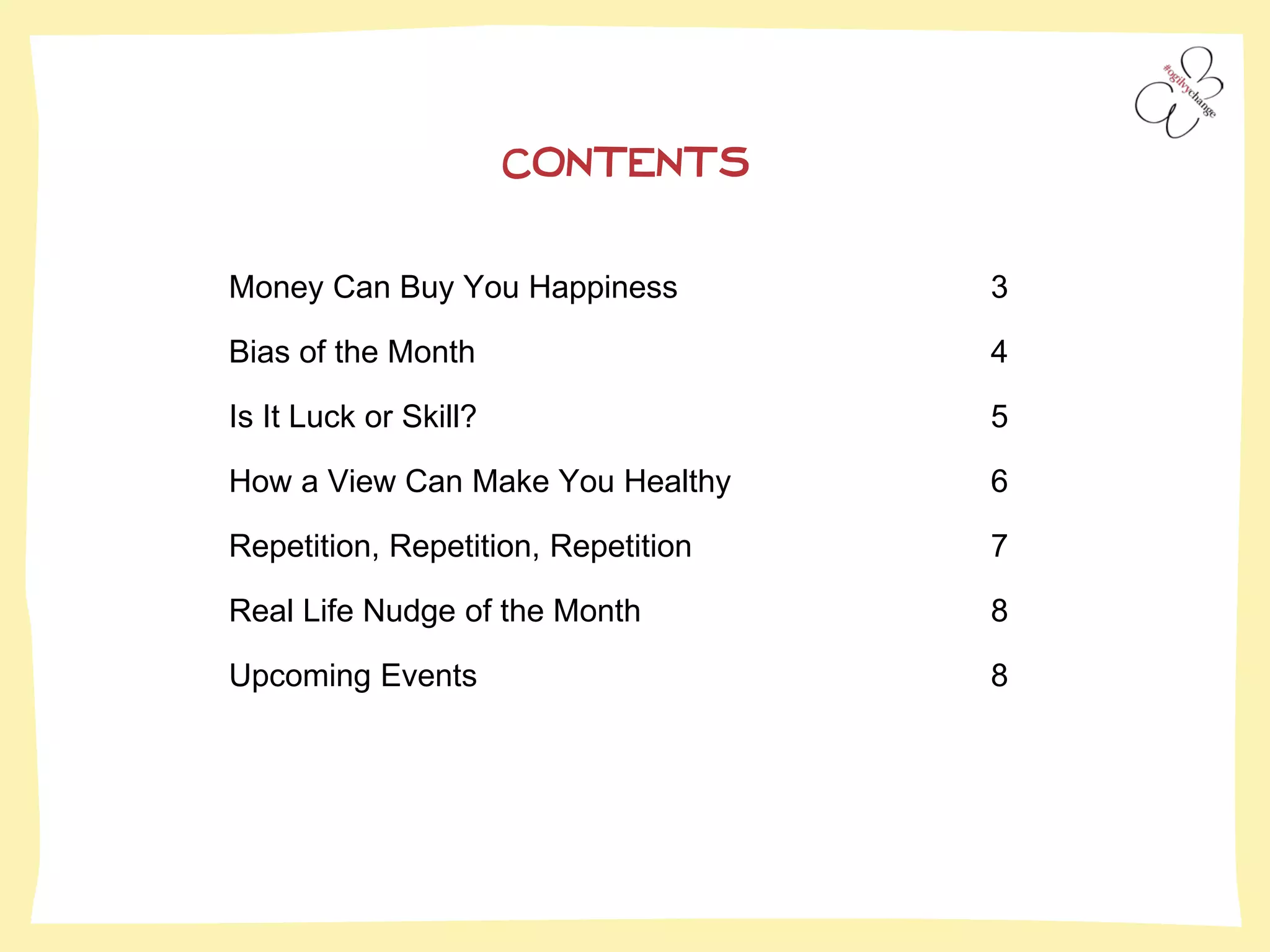This issue of O BEHAVE! provides summaries of recent behavioral science research on various topics:
1) A study found that spending money in ways that match one's personality was linked to higher happiness levels than total income.
2) Research on the hindsight bias and how it can prevent learning from mistakes is discussed.
3) Studies show that attributing success more to external factors like luck increases generosity, while internal attributes decrease support for redistributive policies.
4) Research demonstrated that hospital patients recovering from surgery had better outcomes if they had a view of trees rather than a brick wall from their window.
5) A study found that simply repeating key points in a discussion could change people








